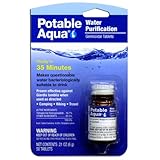Sorry for the slightly late post, but for the next two weeks we will be focusing on getting a first aid kit for our 72-hour kits. There are a lot of different items that you may or may not need, depending on your personal circumstances, so we will add a list of items that we personally think should be considered by most people.
(We understand that some of these items can be a little costly when you add it all up, which is why we are giving two weeks to collect the items. One nice thing about medical supplies is they often come in bulk, so you could team up with other people to divide the items and the cost - I don't think you need a whole bottle of Tylenol for one person for only three days)
- -Prescription Medicine
- Many people don't really think about it, but this is vital for your 72-hour kit. If you take a daily perscription medication, you should be able to find a way to get just three extra days of your prescription, but especially if it's something you can't live without, then make sure you get it in there.
- Contact Solution/Spare Contacts/Spare glasses
- Similar to the prescription medicine, you may not immediately think of this when considering items for a 72-hour kit. However, if you are someone who needs contacts or glasses, this could be life-changing. You never know if an emergency will happen in the middle of the night and you only have time to grab your kit, but if you have pretty bad eyesight (like myself) then you wouldn't be able to last very long without glasses or contacts.
- Tylenol/Advil (some kind of over-the-counter pain relief)
- This may seem small if there is a larger injury, but if you are hurt, any form of pain relief will be welcome. Both Tylenol and Ibuprofen can be found at *Walmart for $7.00 for a 500 count bottle.
- Band-Aids
- You can find a 100 count box of Band-Aids at Walmart for only $4.00
- Hand Sanitizer
- You can usually find a two or three pack at the dollar store. Hand sanitizer can be very helpful if you are stuck somewhere unsanitary but need to eat the food already in your pack.
- Cough Drops
- A bag of 70 can be found at Walmart for $4.00. This may not seem necessary for some, but it could really help out you or a member of your family if an emergency happens when you're already sick (unfortunately most disasters don't wait for you to get healthy)
- Knife/Scissors
- I can name countless reasons to have something that can cut, including freeing someone who is caught and can't move or cutting off material to become a bandage or sling. You can find either at the dollar store.
- Sunscreen/Sunglasses
- You may just save your skin and eyes with this because you can never guarantee that an emergency won't happen in the summer or even just when it's sunny. You can look in the travel section of Walmart for a smaller and cheaper container of sunscreen, and sunglasses can be found at the dollar store.
- Alcohol Wipes/Swabs
- You can find a 50 count of Alcohol prep pads at Walmart for $4.00. Emergency situations are rarely completely sanitary, so an open wound could get pretty intense without something to clean it.
Like I said, there are many other items that you may want or need, but the medical supplies can sometimes be very individualized. So feel free to use these suggestions, and if you can think of any other items that you feel would be important, please comment and let us know!
*I do not think Walmart is the only option for buying these items, nor can I promise that the prices I give will stay the same at your chosen Walmart location. I simply wanted a commonly found store that most often had the cheapest price. If you find any other places that have better deals, please share :)

